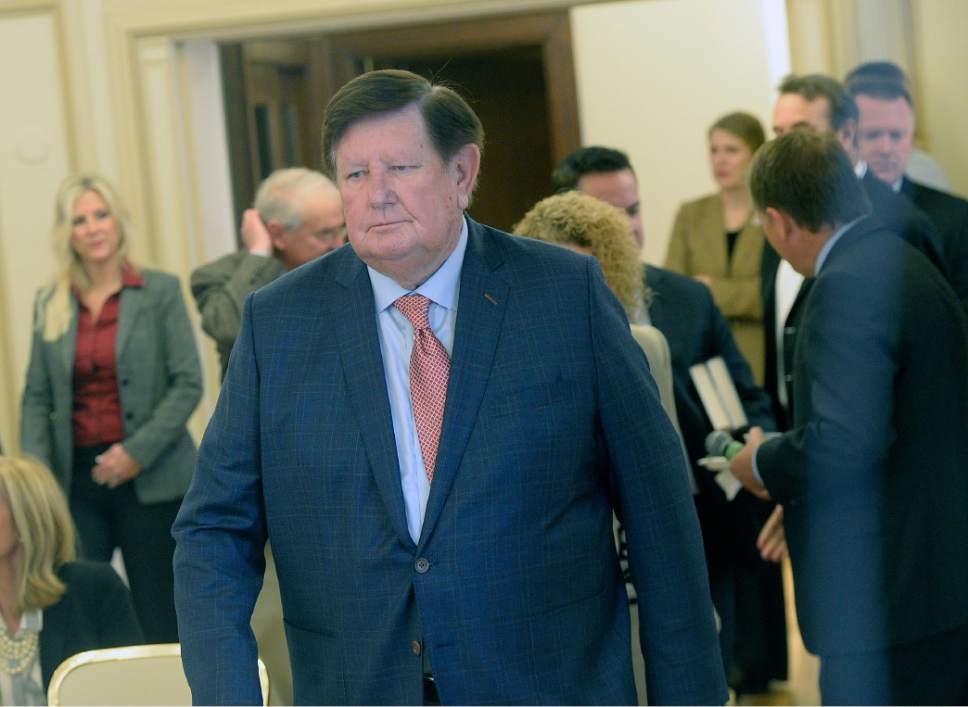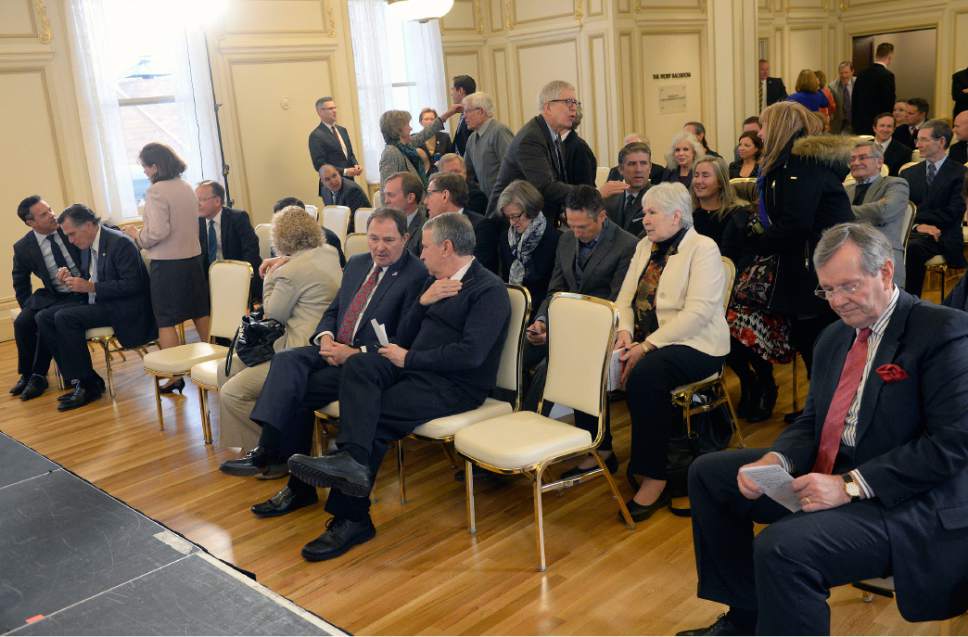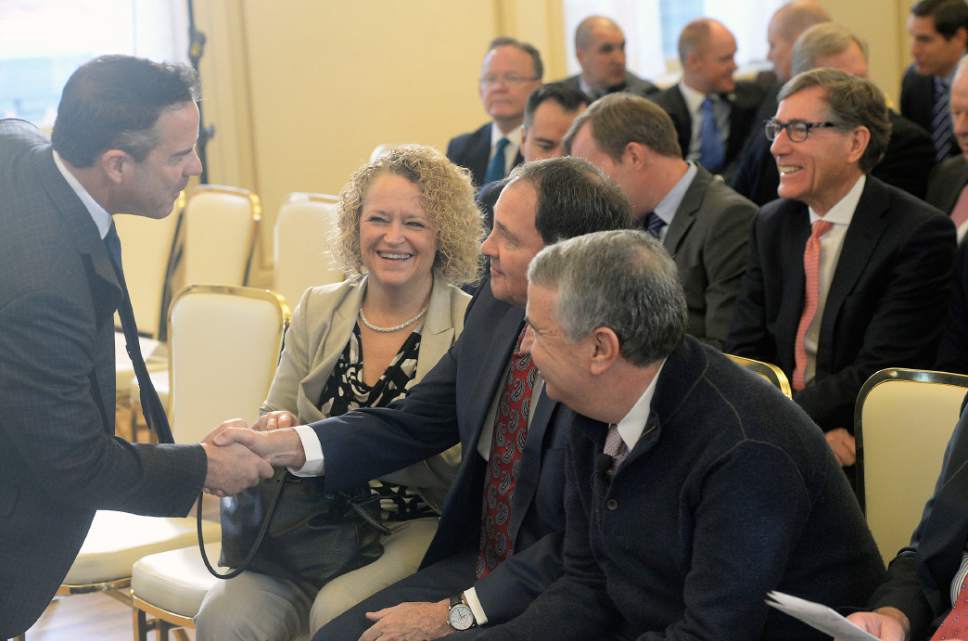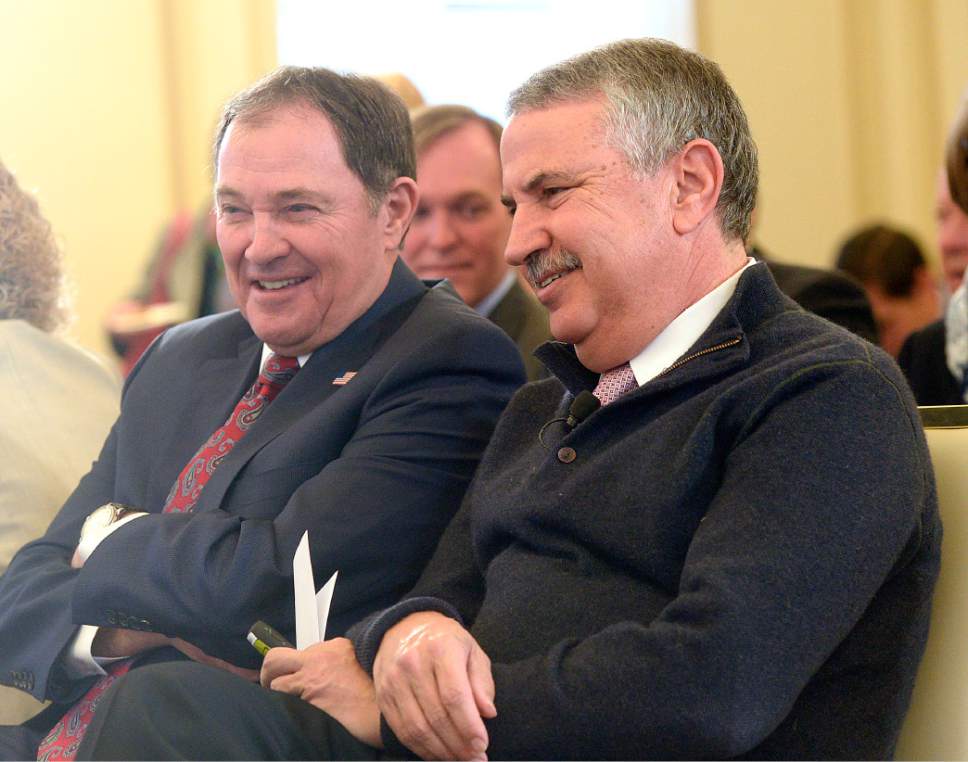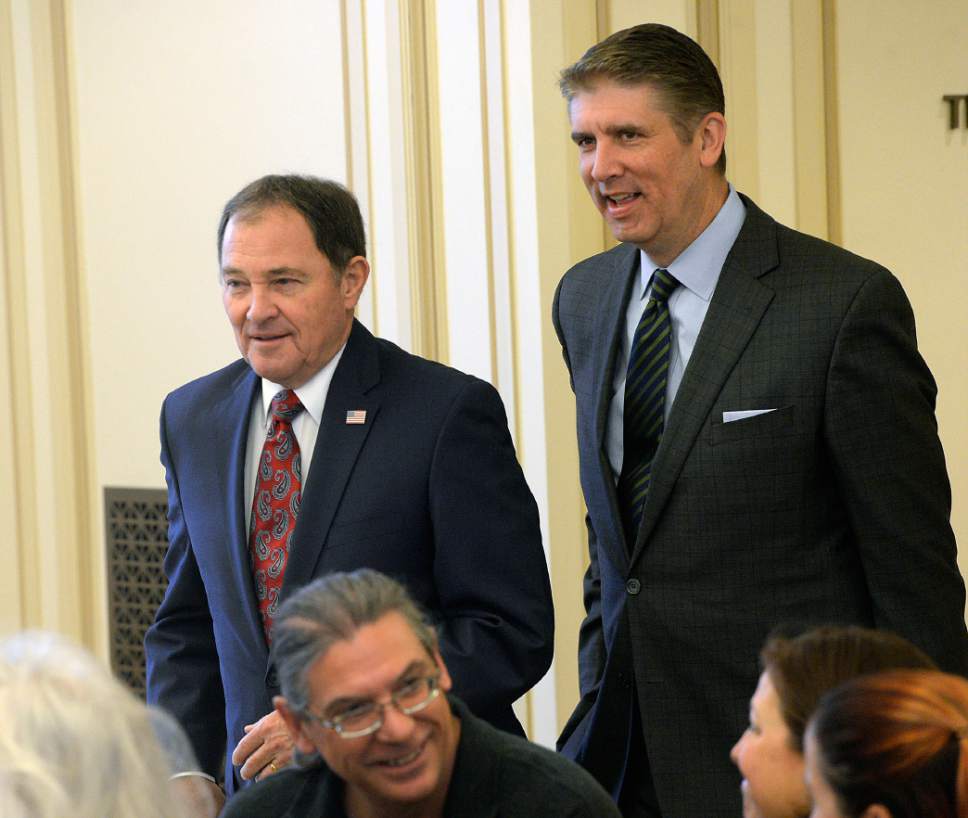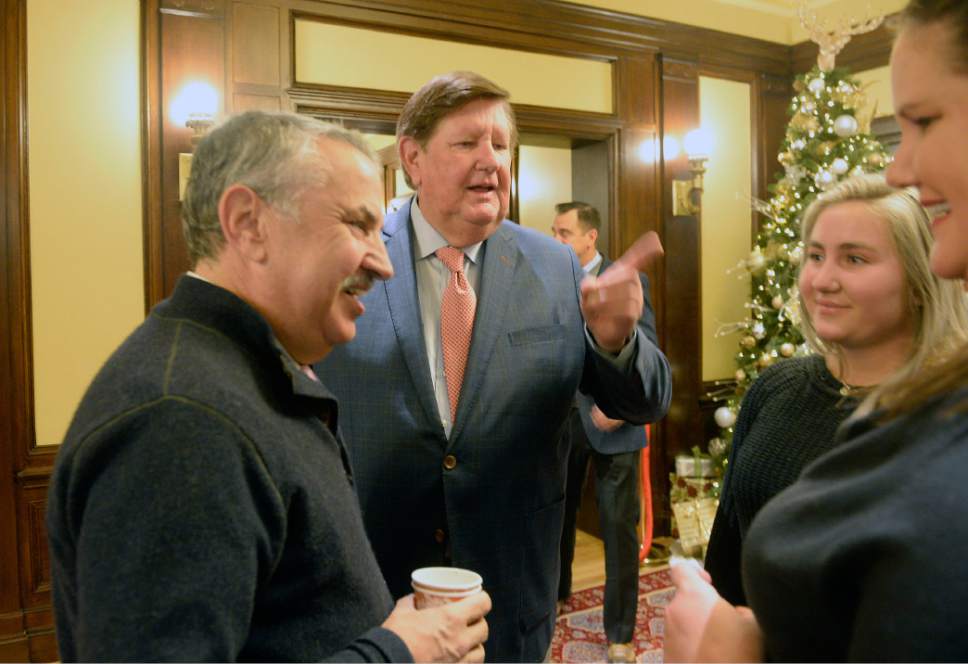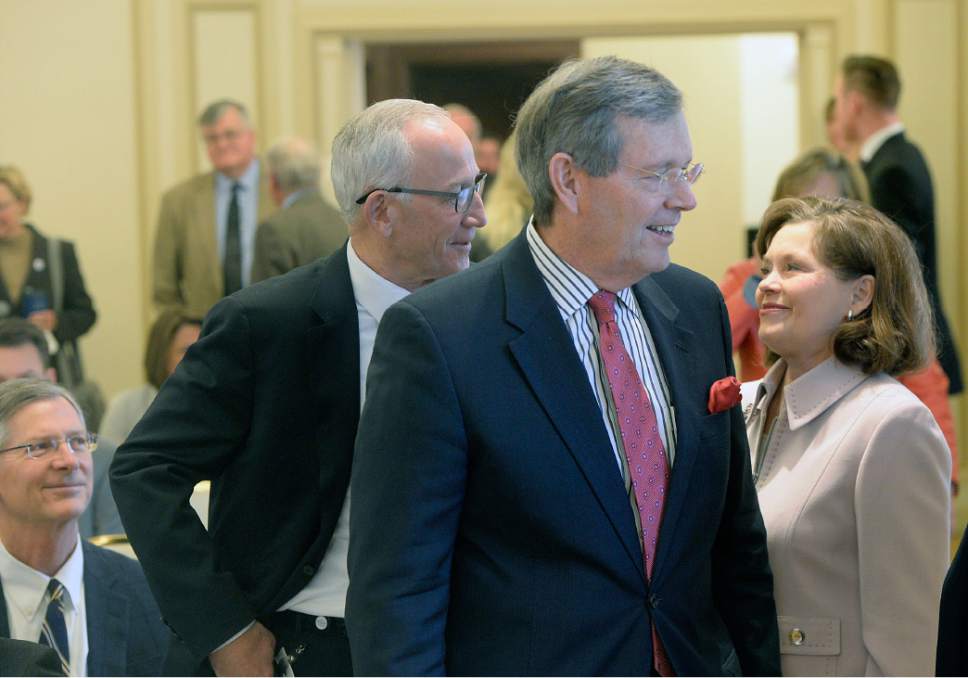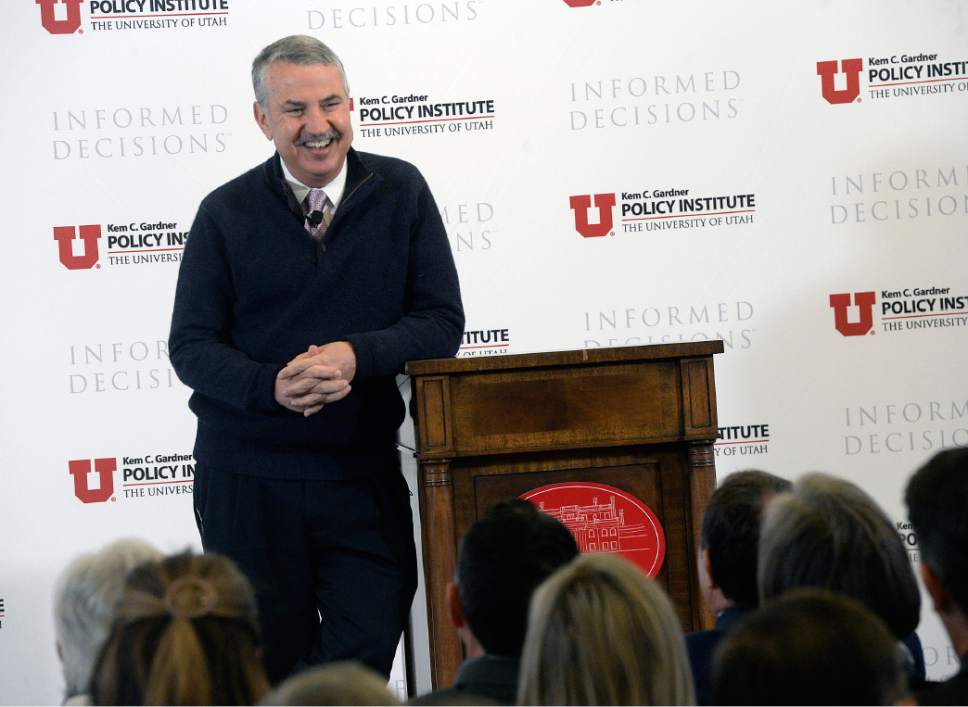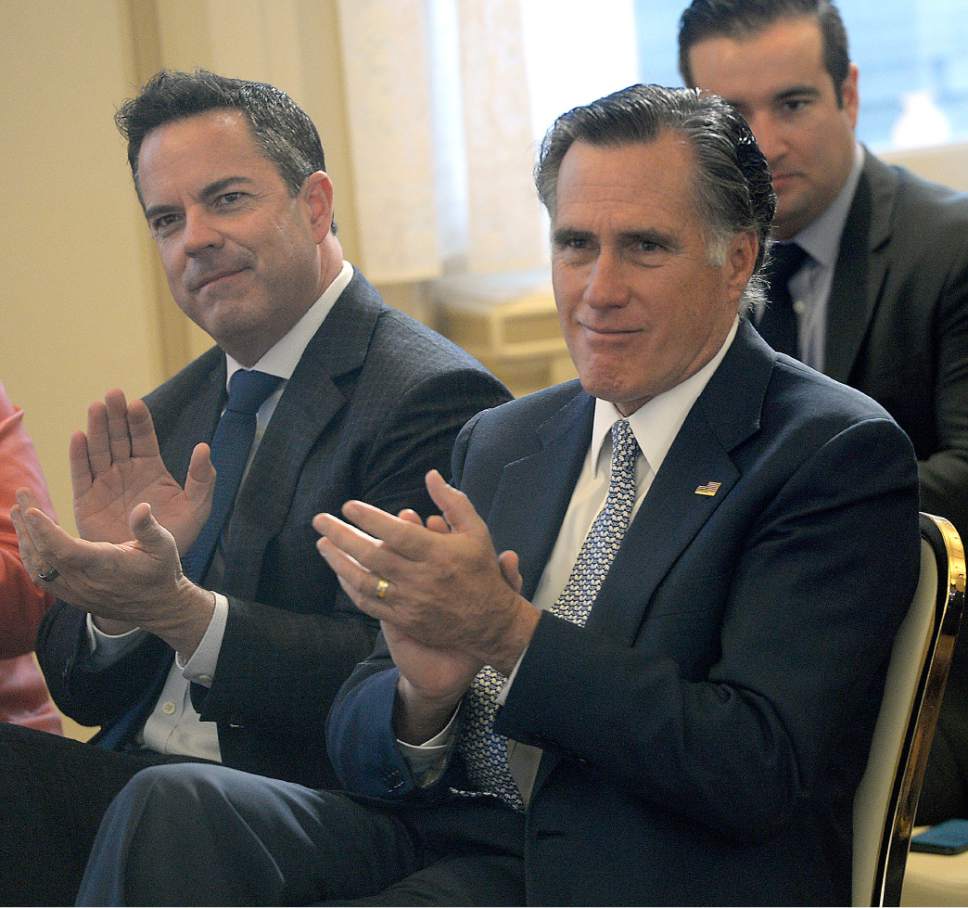This is an archived article that was published on sltrib.com in 2017, and information in the article may be outdated. It is provided only for personal research purposes and may not be reprinted.
A three-time Pulitzer Prize winner warned Utah's political and business leaders Tuesday that they must be creative to handle looming disruption from rapidly accelerating advances in technology.
"We have never been as godlike as a species," with potential for extraordinary good and bad, Thomas Friedman, New York Times columnist and book author, told the inaugural symposium in a new University of Utah series designed to help state leaders better plan for the future.
"We have never stood in a world where one of us could kill all of us," but technological advances may allow that, he said. "And all of us could actually feed, house, clothe and educate every person on the planet if we put our minds to it."
Friedman added, "If we are going to be godlike, we need the golden rule: Do unto others as we wish them to do unto you" — and urged leaders to help create healthy communities and families to foster that.
Friedman addressed the first Kem C. Gardner Policy Institute symposium, a new series overseen by former Republican presidential nominee Mitt Romney and former presidential Cabinet member and Utah Gov. Mike Leavitt. The series aims to foster discussion among local leaders about governing.
The initial session was attended by top business leaders — such as Gardner, Utah Jazz owner Gail Miller and Zions Bank President Scott Anderson — and such politicians as Romney, Leavitt, Gov. Gary Herbert, House Speaker Greg Hughes, Salt Lake City Mayor Jackie Biskupski and Salt Lake County Mayor Ben McAdams.
Friedman discussed his new book, "Thank You for Being Late: An Optimist's Guide to Thriving in the Age of Accelerations."
He noted that for 50 years, the speed and power of microchips have doubled at least every 30 months — leading to exponential growth in computing, the internet and the myriad services they touch.
In 2007 alone, for example, he said, the cloud was born, as were smartphones that could connect to the internet, the Kindle tablet, fracking to extract natural gas, plus public access to Twitter, Facebook, YouTube and Airbnb. He said few noticed those innovations that could be as important as Gutenberg's press was in its era.
Friedman said innovations are coming faster than the ability of most people to keep up — creating a need for lifelong relearning to hold jobs, and the need for government to learn faster to govern better. He likened the rapid innovations to a hurricane, but noted that lyrics of a Brandi Carlile song say, "You can dance in a hurricane, but only if you're standing in the eye."
He predicted a struggle in U.S. politics will be between those who want to deal with the technological hurricane by building a wall — such as passing protectionist laws or hindering entrepreneurship — and those who want to find "an eye that moves with the storm, draws energy from it, that builds a platform of dynamic stability."
Romney asked Friedman what he thinks will be the best jobs for tomorrow in an age of technological change.
Friedman said when he was young, most jobs dealt with how people used their hands. Later, most jobs depended on how they used their minds. In the future, he said they may depend on how they use their hearts.
"What am I when machines can think and robots can do faster and better and smarter than I can?" Friedman said. But they cannot feel and imagine as humans do. "This is going to be the true disruption of the next four years, not [President-elect Donald] Trump."
He added when he graduated from college, "I got to find a job. My daughters have to create a job," as will more people because of technological advances and disappearance of many traditional tasks.
Friedman said he urges his daughters, and others, to have a mindset similar to recent immigrants to America.
"They are paranoid optimists. They left somewhere bad to come to somewhere better, but they are always afraid it could be taken away from them," he said. "They figure out where opportunities are here, and pursue them. ... We're all new immigrants to the era of acceleration."


